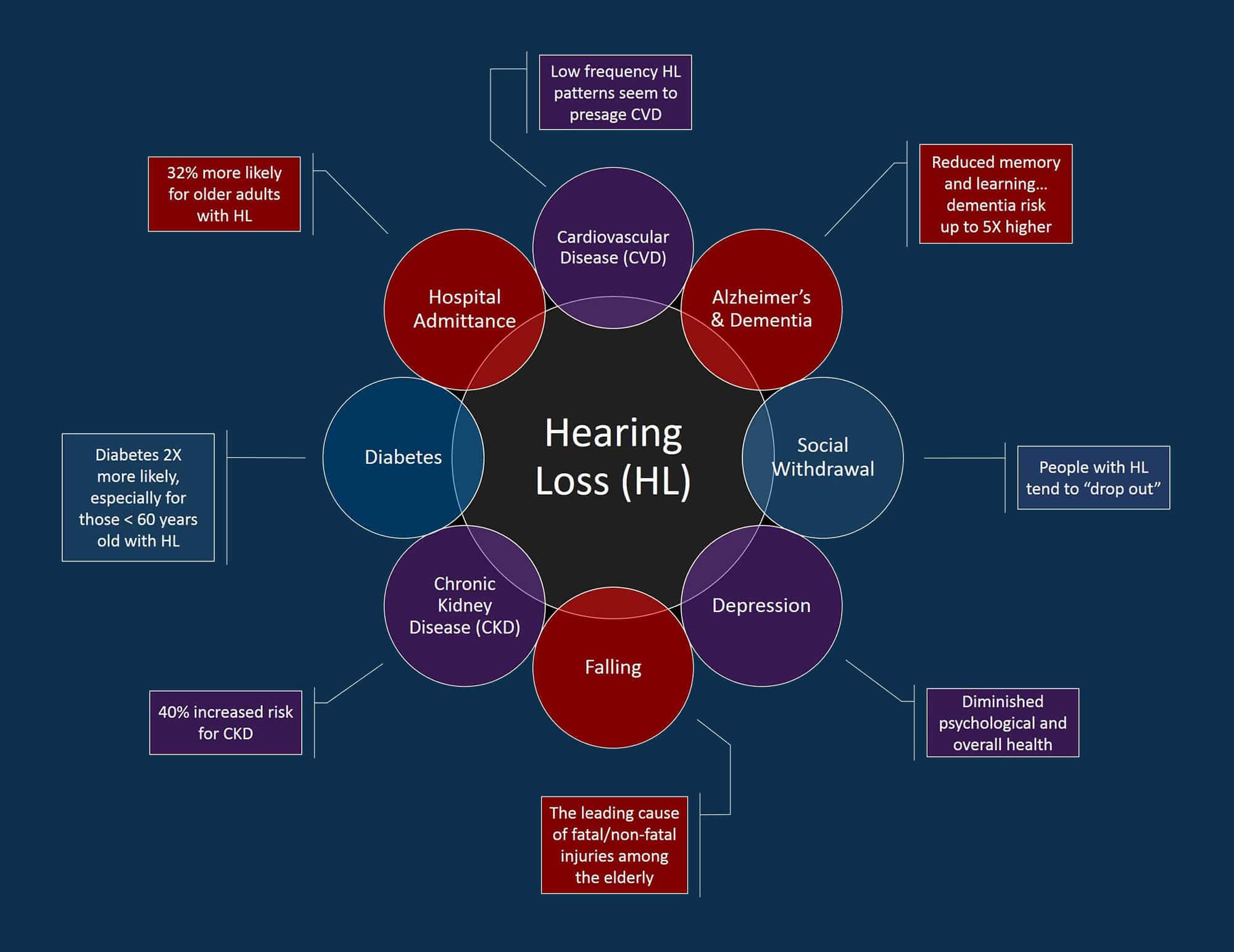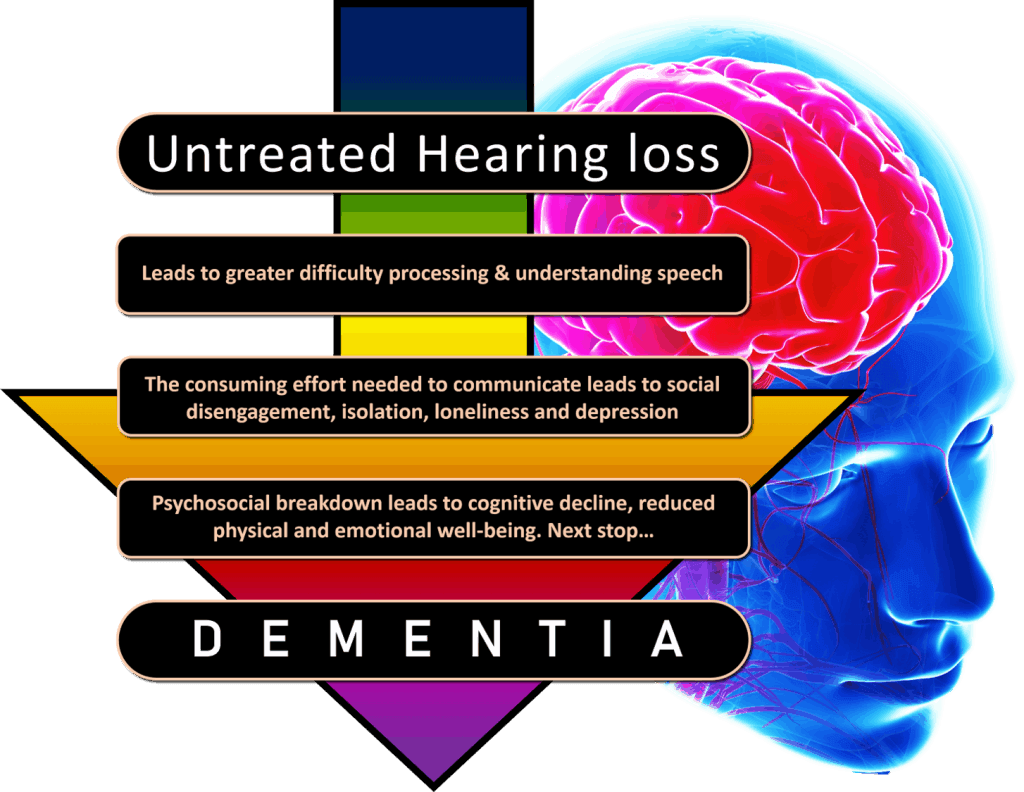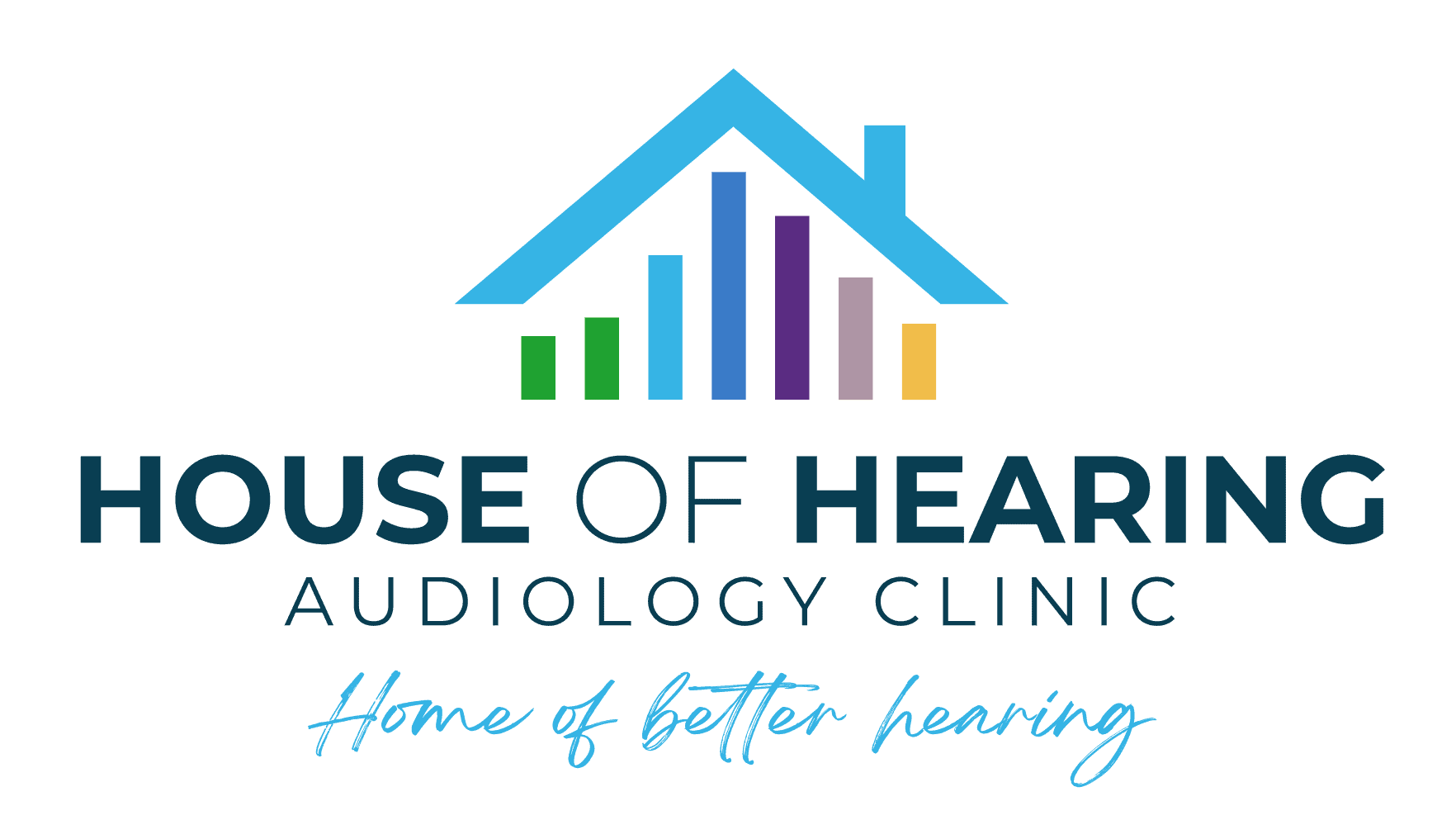Consequences of Untreated Hearing Loss
Untreated hearing loss is like wandering through a dark and foggy forest alone, at night. We’ve all seen movies with this theme, and we all know that the outcomes aren’t good! Untreated hearing loss will eventually damage your physical, emotional, social, and mental health and well-being. The crisis triggered by untreated hearing loss will likely have a profound effect on your relationships with loved ones, family, and friends. A growing body of scientific research indicates that hearing loss promotes and/or aggravates a host of serious medical and emotional conditions (see the chart, above), including cardiovascular disease, dementia, Alzheimer’s disease, social isolation, and depression. In addition, unattended hearing loss promotes balance disorders, leading to serious falls and hospitalisations.
Other consequences of untreated hearing loss include diminished earning potential. A study by the Better Hearing Institute titled The Impact of Untreated Hearing Loss on Household Income concluded that hearing loss has a serious negative impact on family income. In a survey of more than 40,000 households, utilizing the National Family Opinion panel, hearing loss was shown to negatively impact household income on-average up to $12,000 per year depending on the degree of hearing loss. However, the use of hearing instruments was shown to mitigate the effects of hearing loss by 50%!
It has become increasingly apparent that untreated hearing loss is at the nexus of many chronic diseases and conditions. But it has also become apparent that hearing aids can substantially reduce the effects of hearing loss.

Studies Link Untreated Hearing Loss To Dementia
People with hearing problems are more likely to develop thinking and memory problems like dementia and Alzheimer’s disease, according to a recent study from the National Institute of Aging. The risk for these disorders increases with increasing levels of hearing loss; for every 10 decibels of hearing loss, the chance of developing severe cognitive disorders increases by 20 percent. A recent study (Hearing Loss and Incident Dementia) by Dr. Frank Lin MD, PhD from the Johns Hopkins School of medicine found a strong link between untreated hearing loss and the development of dementia.

The evidence gets a supporting nod from brain scan studies at the University of Colorado (and elsewhere), which indicate that in the presence of hearing loss, the brain re-allocates its resources to occupy areas previously occupied by speech processing. Apparently, our brains recognize the diminished usage associated with hearing loss, and do some internal rewiring to use those areas for other functions, including sight. Of course, the brain must then borrow resources from cognitive centers to support speech understanding. This creates a “cognitive load” on the brain, and is thought to be a contributor to the development of dementia. These and other studies indicate that hearing deficits can also lead to withdrawal and social isolation, resulting in physical, emotional and mental declines.
Mounting evidence of serious consequences resulting from untreated hearing loss underscore why hearing loss should not be considered merely an annoying part of aging …but an important issue for public health. But there is also good news! You don’t need to be victimized by the negative effects of untreated hearing loss. The benefits of treating hearing loss are detailed, here.
Two Prominent Research Scientists
Discuss The Consequences And Mitigation Of Untreated Hearing Loss
Hearing loss is a progressive, degenerative disease linked in hearing research, psychosocial studies and neuroscience investigations with credible pathways to dementia...

